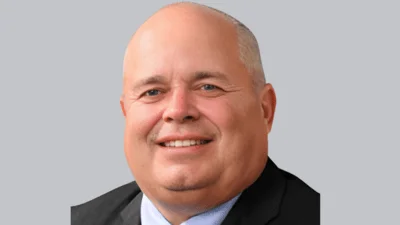The Rock Island County Human Resources Committee met Sept. 13 to review 2016 revenue.
Here are the meeting's minutes, as provided by the committee:
Rock Island County 1504 Third Avenue Rock Island, IL 61201 (309) 558-3605 Human Resources Committee Minutes Tuesday September 13, 2016 10:00 am The Human Resources Committee of the Rock Island County Board met at the above date and time in the Conference Room of the Administration Office on the second floor of the County Building, 1504 Third Ave, Rock Island, IL. Chair Nick Camlin called the meeting to order at 10:00 a.m. Minutes as follows: 1) Call to order and roll call Committee members present: Nick Camlin, Ginny Shelton, Larry Burns, Kim CallawayThompson, Chris Filbert, Rod Simmer, Kai Swanson Committee members absent: none Others present: Dave Ross, Mike Steffen, Jerry Clyde, Kenneth Maranda, Hayleigh Covella, Dave Anderson, Mike Beaderstadt, April Palmer, Louisa Ewert, Karen Kinney, Sylvia Gomez, Rosa Torres, Melissa Schmidt 2) Approval of the minutes from the August 9, 2016 meeting Motion to approve: Rod Simmer 2nd: Kim Callaway-Thompson Voice vote Motion carried 3) Public Comments Mr. Clyde said he is very excited to make two introductions this morning. He introduced Ms. Rosa Torres and Ms. Melissa Schmidt. Ms. Torres is the new HR Administrative Assistant out at Hope Creek and Ms. Schmidt is the new HR Generalist out at Hope Creek. Mr. Clyde noted that this means Ms. Gomez is going to spend a little bit of time with Ms. Schmidt to make sure she has a smooth transition, but also that she is now able to come and be at the county level on a full-time basis. Mr. Clyde said he is excited and pleased and thinks they have a quality staff. Everyone welcomed Ms. Torres and Ms. Schmidt aboard. 4) Consider approval of claims and treasurer’s disbursements (TDs) Motion to approve: Chris Filbert 2nd: Kim Callaway-Thompson Voice vote Motion carried 5) Consider VIPCO at Work and Profile by Stanford programs Mr. Camlin explained that this is what they had presentations on last month and that there are some notes from Dr. Ross and Mr. Clyde on the recommendation of what they’d like the committee to do. Mr. Clyde explained that Mr. Beaderstadt from Benefit Staff is present as well. He has been involved in the analysis of VIPCO in particular. The recommendation right now is to table any further discussion of this idea from VIPCO for at least six months for a number of reasons. For one thing, they put out a number of questions to VIPCO and don’t feel like they got solid answers. VIPCO is also still in a moving target by the IRS. The regulations changed twice in the time VIPCO originally came to the county and they don’t know with the new administration coming on board if this will continue on or not. They feel that there might be some merit to what VIPCO is talking about and don’t want to discount that, but they don’t have enough information to feel comfortable moving forward. Mr. Clyde’s recommendation is to table this for at least six months. Motion to table Item 5 for six months: Rod Simmer 2nd: Ginny Shelton Voice vote Motion carried Mr. Clyde noted that the second presentation was by Profile. He said that it sounds like they have a store and are trying to work through the county to sell their products and services. The county would then run the cost through its payroll system. Mr. Clyde said he cannot be supportive of that for a number of reasons. The basic thing is that his staff is already overstressed with the level of work required of them, especially with downsizing in his office. Mr. Clyde is not in favor of bringing on any new ancillary services at this time. He said they can table this or say they’re not interested. Mr. Ross explained they tabled it and that the last motion was for both programs. Mr. Simmer said that way they can come back to them later on if they want to do something with them. Mr. Camlin suggested that if the department is prepared to do something like that, they should go for an RFP. Mr. Swanson asked for a point of clarification. He asked if they are saying they will bring this back for certain in six months or if they are tabling it indefinitely. Mr. Simmer said six months. Mr. Camlin said in at least six months and noted that they probably will not even exist in six months as a committee. 6) Reports to the Committee a) Condition of Funds – Ms. Palmer Ms. Palmer presented her standard reports. She noted that 75% of the fiscal year is over as of August 31 so she also provided paragraph write-ups. Mr. Camlin asked if Ms. Palmer said in the previous meeting that the county is 75% through the year but has only collected 50% of taxes. Ms. Palmer confirmed that about 50% of property taxes were collected as of August 31st. He asked if the county has had three of four installments. Mr. Camlin thought one was due on Friday. Ms. Ewert explained that they haven’t distributed the third one yet. Ms. Palmer started with the trial balance or budgetary standings of the funds and departments that report to the HR committee. She explained that with 75% of the year gone they want to see 25% or more of the budget left. Looking down the column, they do have that. No one that reports to this committee is over budget spending. On the fund balance page, Ms. Palmer reported that the General Fund current fund balance is $830,300 rounded. That is now down $330,000 compared to last August of 2015. That is a direct result of revenues leveling out for the year. It is only about $110,000 higher this month. Ms. Palmer noted that that’s good because it’s still higher than last year at this particular time, but in past months it has been about $300,000 higher, which has made up for the $220,000 reduction in fund balance from the 2015 fiscal year. That actually made it a little bit better, but now it’s just breaking even so to speak. It is not able to make up for that $220,000 reduction in FY15 so far. Ms. Palmer reported that 54% of property taxes have been collected as of now. The 2016 expenses are comparatively up now about $220,000. On the employee health benefits, since the FY15 fund balance doubled by about $678,000 from 2014 to 2015, it is much closer to a three-month reserve. That’s a really good thing for this particular fund to cover health insurance costs and other needs that are required since the county is self-insured. FY16 revenues are higher than expenses looking across the row by almost $200,000. That is still growing positively this year. The increases that were put in place about a year ago are actually doing their job and things are looking good there. On cash balance page, Ms. Palmer reported that the General Fund cash is, of course, way too low. It had $900,000 as of August 2015. It only has $300,000 as of August 2016. This morning’s General Fund cash was $503,293 as of early this morning. Ms. Palmer noted that Ms. Ewert is reporting at $900,000+ as of sometime this afternoon. She’ll also get in supplemental sales tax. Ms. Ewert explained that $900,000 includes the supplemental sales tax. Ms. Palmer explained that the county still has remaining about 6½ more payrolls at approximately $765,000-770,000. There are about 4½ months left for claims and TDs at about $575,000 each. That means the county needs around $8 million just to finish this fiscal year if there are no changes. She only expects $8.9 million more in revenue if the county gets every little bit of remaining revenue. As long as nothing unexpected happens and the county gets all of that revenue, that only leaves a little over $1 million cash to go into FY17. Last year, there was almost $2 million going into FY16 in cash. Ms. Palmer noted that that’s a bit concerning, of course. That’s why the county is having this cash crunch and fighting for every single dollar it can possibly get to meet payroll needs. There are two more this month to go, plus the claims of $411,000. Ms. Palmer noted that for IMRF and FICA, the county did increase those property taxes, which is paying off. They are leveling out. Those will be able to make it to the end of the fiscal year without any problem. They are working on collecting enough to meet the IMRF needs of about $2.5 million to get through six months and the FICA needs of about $1 million to get through six months of expenses. Those are right on track. Looking into new fiscal year, the county should be able to just levy the expense amount for the year. Ms. Palmer explained that the State of Illinois Payments Report shows exactly what came in for a month from the state for the General Fund’s non-departmental revenues. She noted that those are something County Board member might want to go out and look at ahead of time or do some comparisons. She did attend a State of Illinois Comptroller’s training and provided a flyer that was handed out for additional information on the state website. The comptroller has these three access points: Ledger, Warehouse, and Open Book. On those, you can compare county to county in the state. Every year, the auditors have to provide by law their audited figures. Those are real life actual numbers that the websites would be comparing. On there, you can also see, like Ms. Ewert was saying with the supplemental sales tax, what revenues the county can anticipate getting in the near future. Ms. Palmer thought that would be a great tool. She noted that it was neat to see it pulled up when they were giving the presentation. b) Health Insurance Planning Committee – Mr. Swanson Mr. Swanson noted that the committee is doing the final tweaks they need in order to move to the new model that replaces the popular Premier Plan. They’re trying to take care to minimize the amount of disruptive change that might happen. One thing they found very informative at the last meeting was they asked for a breakdown of where employees go because with the new system, there are incentives to go to UnityPoint Trinity. There was concern that if they shift people to go to UnityPoint if that would be a disruptive change. The experts came back with some really interesting data. It’s a 70/30 to 80/20 split. Even though the old plan that’s phasing out had incentives to go to Genesis, employees were going to UnityPoint Trinity. There are some that have to change, but most all of the features they access through their insurance remain the same. This is talking about inpatient procedures. Even if someone’s doctor is mostly aligned with Genesis, they can still likely have privileges at UnityPoint. The goal was to make the changes as minimally disruptive as possible. Mr. Swanson noted that they had a little more discussion and will probably nail it down. Then Mr. Clyde and his team will start an education effort for all county employees. Mr. Clyde noted that Mr. Beaderstadt has assisted directly with all these efforts. The middle part of October, the HR Department will have educational meetings throughout the county to educate employees because the county is dropping the Premier Plan. That is no longer offered by UHC. The county is going to more of a PPO-type structure than it had in the past. There is some education to do, so they’ll try to go out to employees and answer all their questions. Mr. Beaderstadt and Mr. Johnson offered to join the HR Department in that. They are also working on a PowerPoint to send out to all employees explaining the health plans. Mr. Simmer asked if Mr. Beaderstadt is the contact point for the benefits coordinator. Mr. Beaderstadt said yes. He noted that the insurance committee pays his bill, but Mr. Ross gave them the goal to have a 2% increase. If they had done nothing it would have been a 7% increase. These benefit changes take up that 5%. He would say that nearly unanimously they were in favor of what his team recommended. Mr. Swanson noted that Mr. Beaderstadt and his team more than earn the amount the county pays them in terms of savings. Mr. Clyde concurred. Ms. Shelton asked if Mr. Swanson is saying that the hospital would be UnityPoint. Mr. Swanson said only if they go through an inpatient procedure. There’s an incentive to stick with UnityPoint. Ms. Shelton asked for confirmation that if they normally go to Genesis, they’d still be able to do that. Mr. Swanson confirmed that they would. Mr. Clyde explained that if someone goes to UnityPoint with the county’s base plan, they would have a $0 deductible. If they go to any other facility within the network outside of UnityPoint, they’d have a $400 deductible on the base plan. On the optional plan, it’s a $500 deductible with UnityPoint and $1,000 outside of UnityPoint. Mr. Swanson noted that that lowers the out of pocket cost. Ms. Shelton said that’s what she wanted clarification on. Mr. Clyde noted that the max out of pocket is $3,000 for an individual and $9,000 for a family. Mr. Simmer asked if he could get a copy of that information. He noted that with his office, even if they do or don’t cover they still ask him. That’s why he asked who the go-to person is for the benefits coordinator. He doesn’t tell patients to call the insurance company because the insurance company will feed them a line. Mr. Clyde told Mr. Simmer he can tell them to call him. Mr. Simmer said that if he can have a copy of the information, he can just show them that. Mr. Clyde added that for office visits, they still have a copay of either $20 or $25 depending on the plan. That won’t change from the way it is now. Ms. Callaway-Thompson asked how Mr. Clyde’s office is disseminating the information to employees. Mr. Clyde said his office is going to send out an email with a PowerPoint to all employees who have email. Then they’ll have dog and pony shows in all the various different departments. Mr. Swanson noted that it’s a narrated PowerPoint. Ms. Kinney asked if the UnityPoint is only for inpatient services. Mr. Clyde confirmed. Ms. Kinney asked if it’s if you plan on having a hospital stay. Mr. Clyde said yes; if you go to UnityPoint you’ll save money. Ms. Kinney asked what happens if your doctors don’t service UnityPoint. Mr. Swanson said patients have more say in that than they know. Doctors generally have admitting privileges. Mr. Beaderstadt explained that they do, but many doctors may say that they only go to Genesis, for example. If that’s the case and you want to continue using that doctor and that facility, it’s a slightly higher out-of-pocket cost. Ms. Kinney said if it’s a specialist, she’d want to. Mr. Beaderstadt explained that many specialists may have privileges at both but direct patients to a certain hospital. Mr. Simmer noted that as far as UnityPoint goes, they all have hospitalists anymore. Mr. Swanson said that these were the kind of conversations that prompted them to ask and about 80% of county employees already go to Trinity UnityPoint. Mr. Simmer said it’s because it’s on this side of the river and the bridge sucks. Ms. Shelton asked if Illini is through Genesis. She noted that they have employees out at Hope Creek and a lot of them live in that area. That’s the closest hospital. She wanted to know about that. c) Human Resources Department – Mr. Clyde Mr. Clyde said he would be short and brief. As far as work comp, they still continue to see below average costs to where they were last year. Mr. Simmer asked if that’s directly related to that third party. Mr. Clyde explained that he attributes it to Company Nurse and to the fact that Ms. Gomez and her team are working on ways to further reduce workers comp. He’ll have more information in coming months about the risk management committee. Overall it’s staying in the right direction. The county will have a claim coming up that will be in the $15,000-20,000 range in the next 30-60 days. He anticipates that. Other than that, he doesn’t see anything out there on the horizon that will be catastrophic. Mr. Clyde noted that since they have Ms. Schmidt and Ms. Torres on board, Ms. Gomez will be coming in the next couple weeks to be with his office full time and they’ll be able to progress on special projects. That includes job descriptions, performance appraisals, and sexual harassment training for leadership. That training will be sent out in the next two weeks. d) Negotiating Committee There was nothing to discuss under Item 6d. 7) Adjourn Meeting adjourned at 10:26 a.m. by Chair Nick Camlin. Future scheduled meetings on October 11, November 9, December 13, and January 10






 Alerts Sign-up
Alerts Sign-up